Description
ABSTRACT
The National Industrial Court of Nigeria Swimming with the Tide in Ebere Onyekachi Aloysius V Diamond Bank Plc.
Israel N. E Worugji* and Nheoma Eme Worugji**
The lack of mutual respect and co-operation in most employment relationships, without due regard to the employee, is one that calls for concern. The employee in most cases is considered as a tool or factor of production at the disposal of the employer. Hence, the International Labour Organisation (ILO) created certain standards to ensure that the rights and dignity of the employee is paramount particularly in instances where the employer seeks to bring the employment relationship to an end. In such instances, the ILO standards emphasize the need for employers’ reason or reasons to terminate an employee’s contract of employment to be conduct or capacity related and fair. Unfortunately, the Nigerian labour system still grapples with adhering to the international labour standards and best practices because of the strict adherence to the common law principles. It is against this background that the National Industrial Court of Nigeria (NICN) was compelled to chart a new way for the Nigerian labour law in Aloysius case and to bring the law in tandem with international labour standards and international best practices, and to key into the global decent work agenda. This contribution rationalizes the NICN decision in Aloysius case and argues for its sustainability.
Keywords: Employment, Termination, Notice, NICN, ILO Standards.
INTRODUCTION
In employment relationship, misunderstanding and disagreement may arise because one or the other party may be dissatisfied with some aspect of the other’s conduct, work performance or other related issues. This, in some cases, may bring the employment relationship to an end. It is the controversy over how the relationship is ended that has been the issue in most cases. It is evident that some employers, in some cases, see the workers as a factor of production which can be dispensed with at will without any consequences to the employer. Such employers do not consider that the worker has feelings and emotions.
The voluntariness and presumption of equality of the parties in employment relationships understate the nature of the employment relationship. The worker in fact, in most cases, lacks the freedom and equality which is presumed in employment relationship.1
* BA, LL.M, BL, PhD. Professor of Law in the Faculty of Law, University of Calabar, Calabar. Nigeria.
** LL.B (Calabar), BL, LL.M (UCT). Law Lecturer, Department of Jurisprudence and International Law, Faculty of Law, Rivers State University, Nkpolu-Oroworukwo, Port Harcourt. Nigeria.
- Otto Kahn-Freund, ‘Legal Framework’ in Allan Flanders and Huge A Clegg (eds), The System of Industrial Relations in Great Britain (Basil Blackwell 1954) 42, 47; see also Otto Kahn-Freund, Paul Lyndon Davies and Mark Robert Freedland, Kahn-Freund’s Labour and the Law (3rd edn, Stevens and Sons 1983) 3 accessed 14 April 2020; Simon Deakin and Gillian S Morris, Labour Law (6th edn, Hart Publishing Ltd 2012) 133 and AA Adeogun, ‘The Legal Framework of Industrial Relations in Nigeria’ (1969) 3(13) Nigerian Law Journal 13.

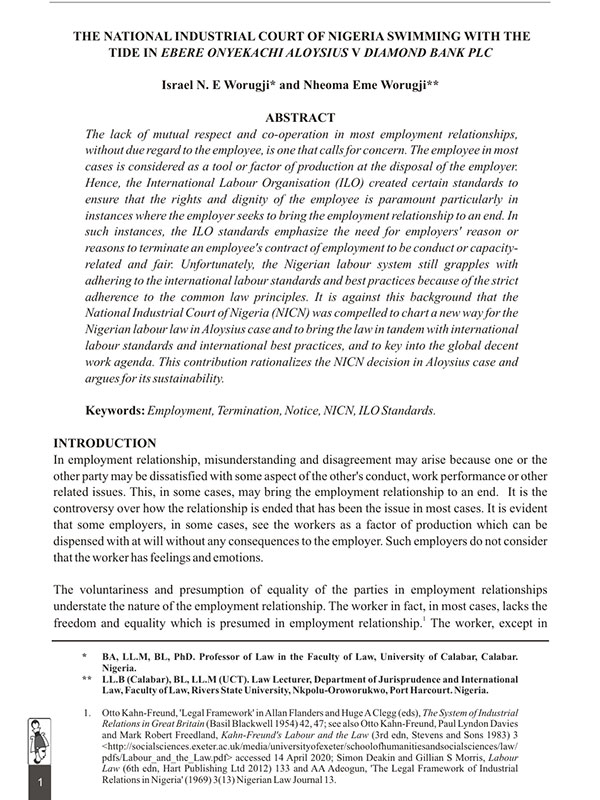
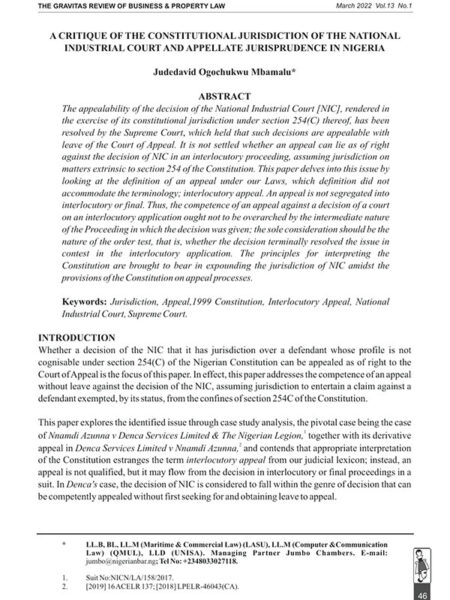
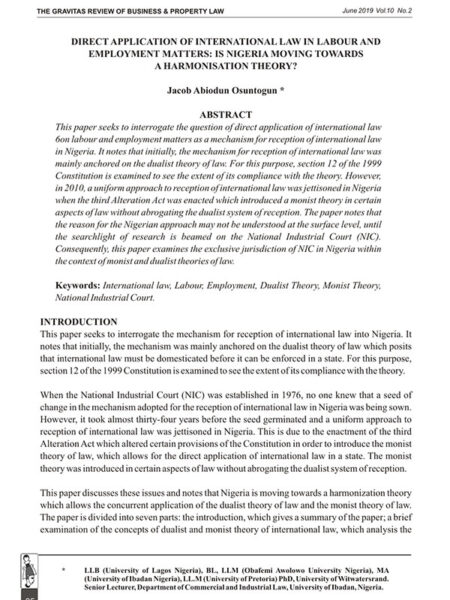
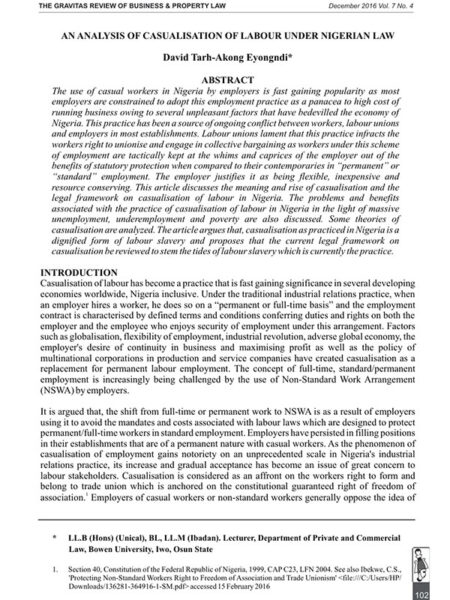
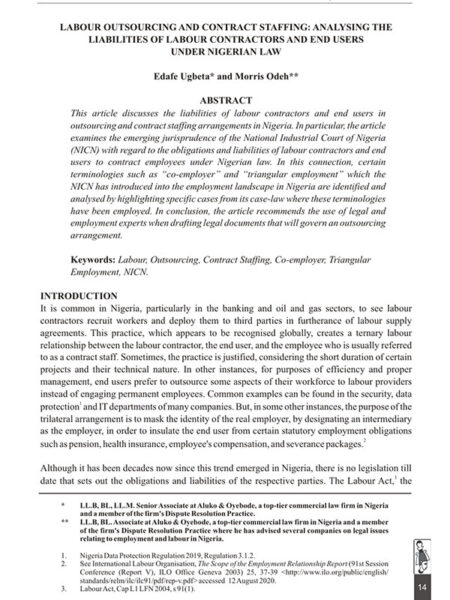


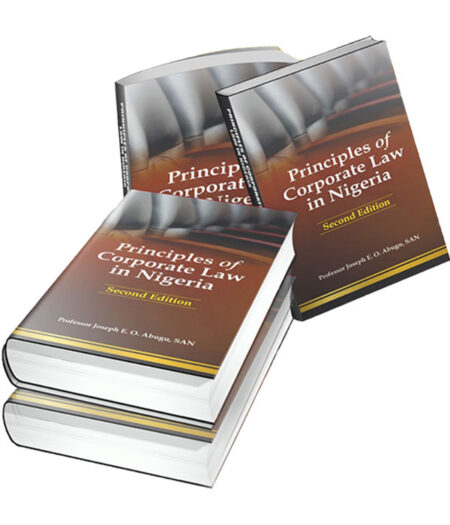
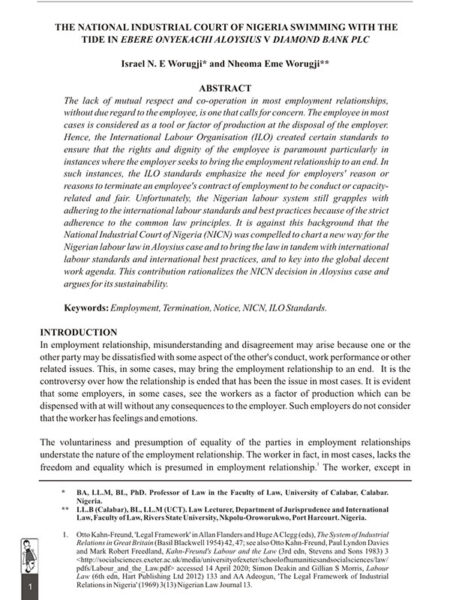
Reviews
There are no reviews yet.